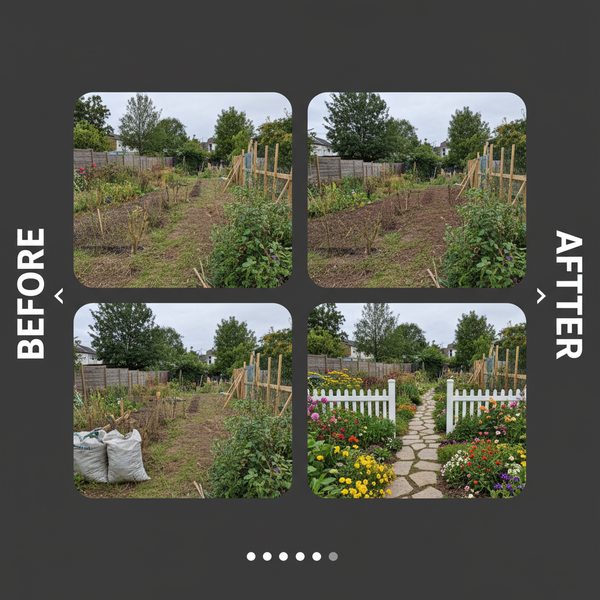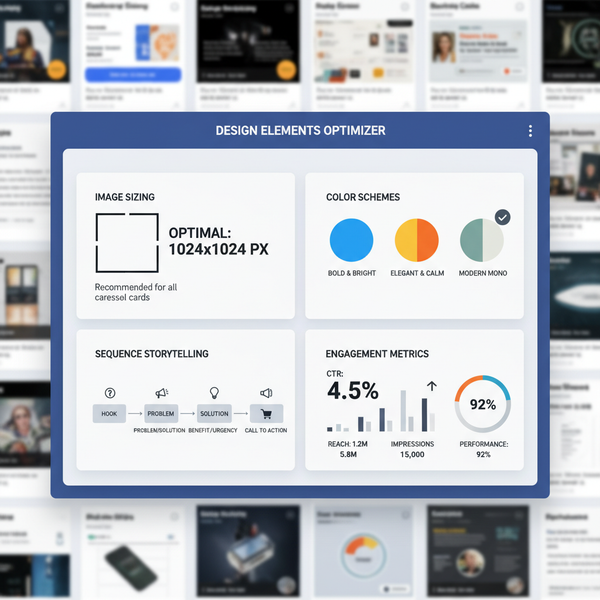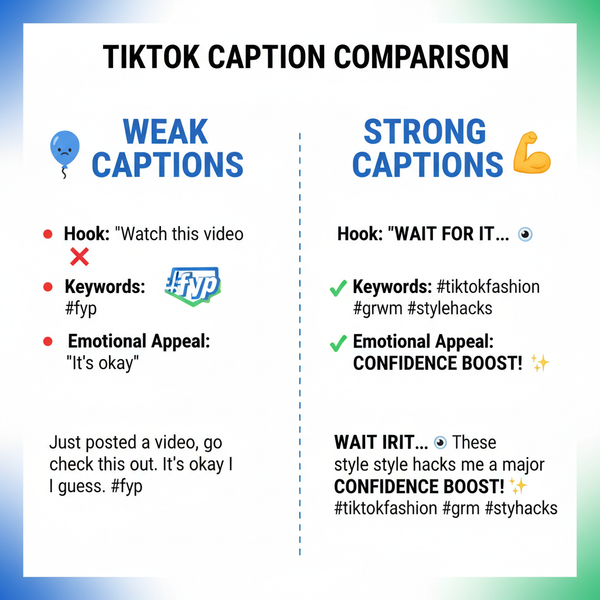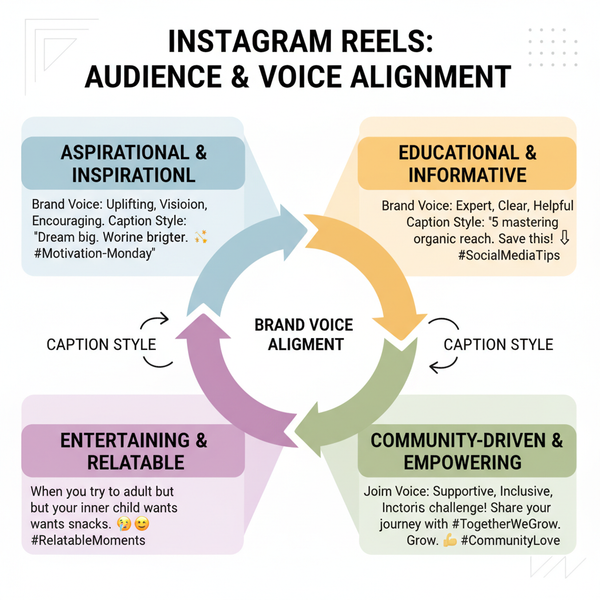Boosted Post Meaning and How It Works in Social Media Market
Learn what boosted posts are, how they differ from full ad campaigns, and how to use them on social platforms to grow reach and engagement efficiently.
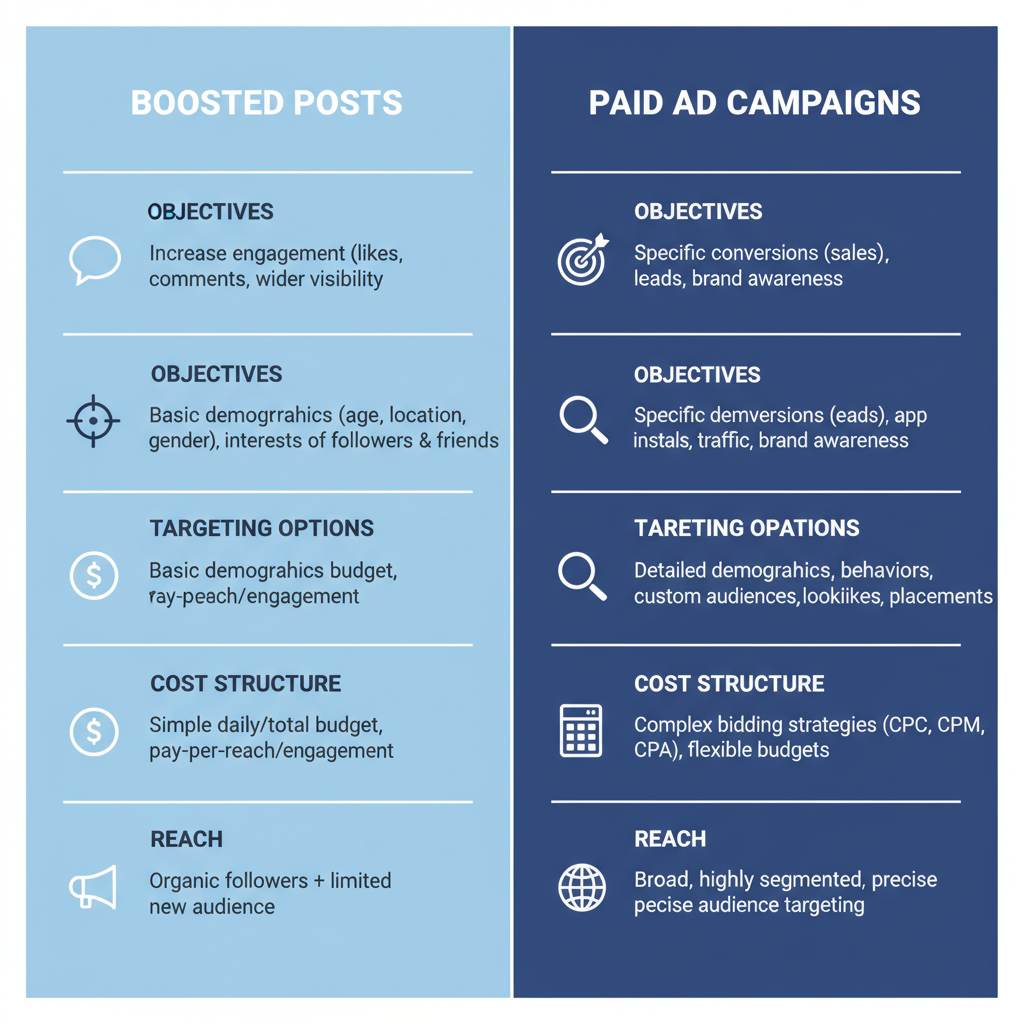
Understanding the Boosted Post Meaning in Social Media Marketing
Boosted posts are one of the simplest ways to expand your reach on social media without diving deep into complex advertising tools. If you’ve ever wondered about the boosted post meaning and how it fits into a strategic marketing plan, this guide explains what boosted posts are, how they differ from paid ad campaigns, and when they should be used to maximize engagement and brand visibility.

---
What is a Boosted Post?
A boosted post is an existing organic social media post that you pay to promote so it reaches a larger audience. Instead of creating a separate advertisement from scratch, you take a post already published on your page or profile and extend its reach beyond your current followers.
Boosting is typically the fastest and most straightforward way to turn content into a paid promotion. The term “boost” comes from the platform's feature that enables increased exposure with just a few clicks, making boosted posts ideal for quick campaigns.
---
Boosted Posts vs Paid Ad Campaigns
While boosted posts fall under the umbrella of paid social media marketing, they differ from full ad campaigns in several ways:
| Aspect | Boosted Post | Paid Ad Campaign |
|---|---|---|
| Content Source | Existing organic post | Custom creative built in Ad Manager |
| Setup Complexity | Simple, via "Boost" button | Advanced targeting and configuration |
| Targeting Options | Basic audience, location, interests | Detailed demographics, behaviors, and custom audiences |
| Objectives | Mostly engagement or reach | Variety: conversions, lead generation, app installs |
| Analytics Depth | Limited metrics | Comprehensive reporting |
In short, boosting is a streamlined form of advertising, perfect for quick deployment rather than elaborate, multi-step campaigns.
---
Why Businesses Use Boosted Posts
Boosted posts are popular among businesses for several reasons:
- Expanded Reach: Show your content to people beyond your existing followers.
- Increased Engagement: Gain more likes, comments, and shares.
- Brand Awareness: Introduce your brand to entirely new audiences without major setup.
Especially for small businesses or those new to social media ads, boosting offers a low-barrier way to experiment and gather results.
---
Platform-Specific Boosting Methods
Choose a published post, click the blue “Boost Post” button, set your audience, budget, and duration, then Facebook displays your post in more newsfeeds. Targeting includes interests, age, gender, and location.
Boost directly from the app by tapping “Boost Post” under your content. Select the audience, budget, and duration. Instagram uses Facebook’s Ads Manager infrastructure, so targeting works similarly.
Under the name “Sponsored Content,” LinkedIn allows page admins to sponsor an existing post to reach professionals filtered by industry, skill, or job title.
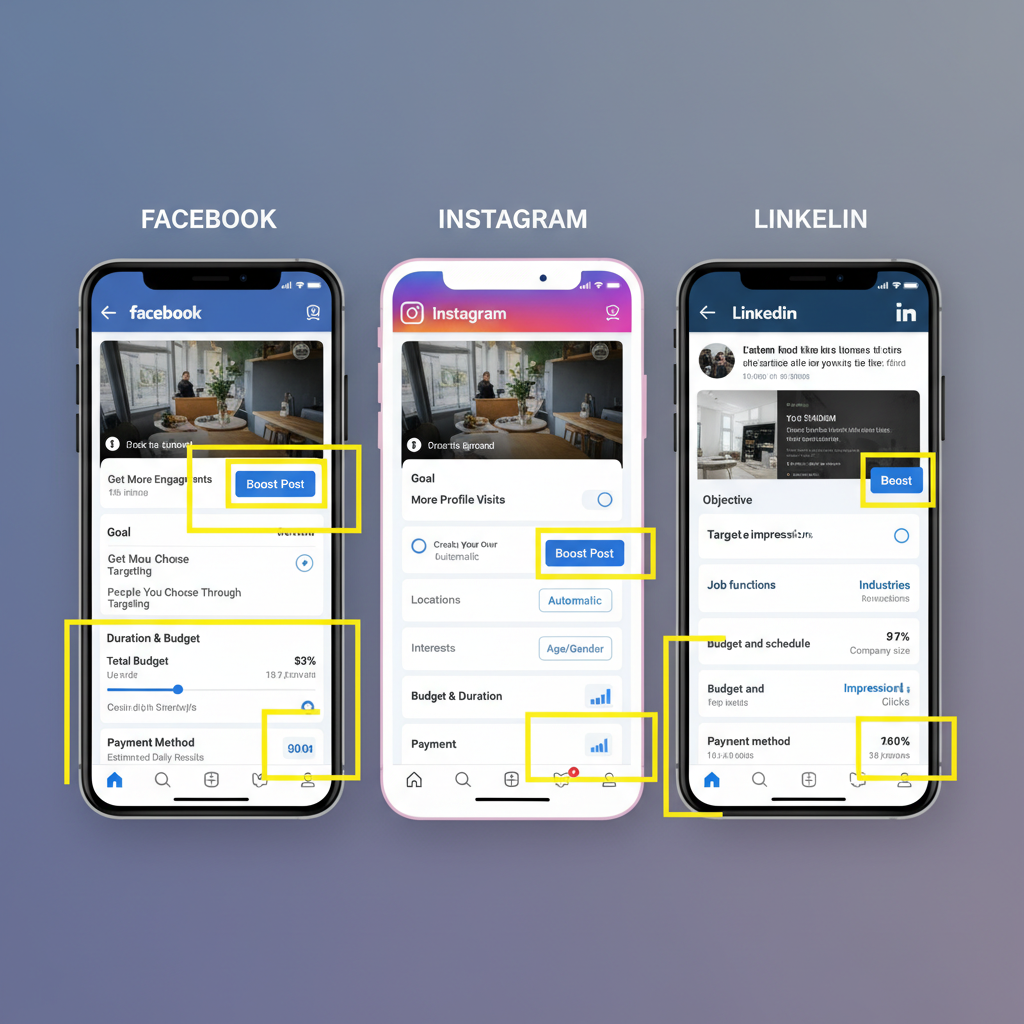
---
Setting Targeting Options
Targeting determines who will see your boosted post. Options typically include:
- Audience Type: Followers, lookalike audiences, or custom-built segments.
- Location: Countries, regions, or specific cities.
- Interests & Behaviors: Subjects relevant to your industry or topic.
- Demographics: Age, gender, language, education level.
Highly relevant targeting improves ROI and campaign efficiency.
---
Choosing Budget and Duration
When boosting, set:
- Budget: How much you plan to spend.
- Duration: Total days or weeks the boost will run.
Platforms often estimate expected reach. For example, $20 for 5 days might yield 2,000–5,000 impressions, depending on competition for ad space.
---
Benefits of Boosting
Boosted posts offer several advantages:
- Simplicity: No need to master complex ad platforms.
- Speed: Launch within minutes.
- Immediate Impact: Rapid delivery of impressions and engagement.
---
Limitations Compared to Full Campaigns
Be aware of these constraints:
- Limited Objectives: Not designed for in-depth conversion tracking.
- Basic Targeting: No advanced segmentation or remarketing.
- Simple Metrics: Limited insight compared to full reports.
---
When to Use Boosted Posts vs Running Ads
Boost a post when:
- You have a strong organic post with above-average engagement.
- You need rapid exposure without campaign-building complexity.
- You have a small budget or short timeline.
Opt for ad campaigns when:
- Precise targeting is essential.
- Conversions or lead capture are the goals.
- Split testing multiple creatives is planned.
---
Examples of Boosted Post Use Cases
- Product Announcements
- Boost a new launch post to reach wider markets.
- Event Promotions
- Drive attendance for webinars, trade shows, or local gatherings.
- Content Highlights
- Boost blog links, videos, or infographics to enhance thought leadership.
- Seasonal Offers
- Promote discounts during peak holiday shopping periods.
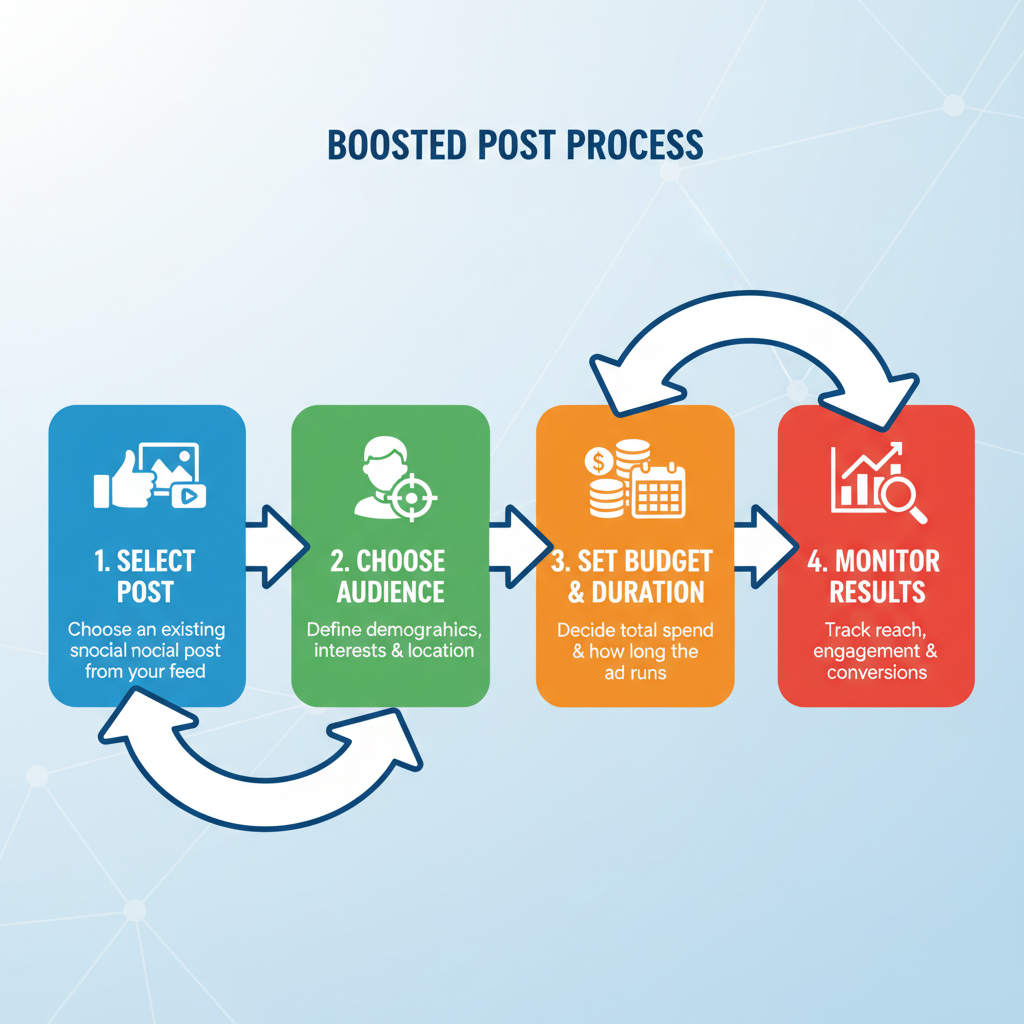
---
Common Boosting Mistakes to Avoid
- Boosting posts with poor organic engagement.
- Targeting overly broad audiences that waste budget.
- Running boosts too short for measurable results—or too long without fresh creative.
- Neglecting quality visuals or copywriting, which can hurt engagement.
---
Tips for Optimizing Boosted Posts
- Start with Proven Content: Boost posts that already resonate organically.
- Use Visual Impact: High-quality images stop scrolls.
- Include a Clear CTA: Encourage audience action.
- Test Target Audiences: Experiment with different criteria.
- Optimize for Mobile: Ensure content displays well on smaller screens.
---
Tracking Key Metrics
Even with basic analytics, monitor:
- Impressions: Frequency of post views.
- Engagement: Likes, shares, and comments.
- Clicks: CTR on linked content.
- Cost per Result: Efficiency of spend per engagement.
Example workflow:
Step 1: Open Post Insights → Step 2: Review Reach & Engagement →
Step 3: Compare to Previous Organic Performance →
Step 4: Adjust Targeting & Budget for Next Boost---
Final Thoughts: Integrating Boosted Posts Into Your Marketing Strategy
Grasping the boosted post meaning empowers you to use this simple advertising tactic effectively. Boosted posts sit between organic content and complex ads, providing a fast, budget-friendly option to amplify messages.
Select the right posts, refine audiences, and manage spend wisely to make boosting a valuable part of a diverse marketing plan. Use boosts for testing and audience expansion, then scale successful ideas with more advanced campaigns.
Next Step: Try boosting one of your highest-performing posts this week and analyze the results to inform larger paid strategies. Doing so can help you build momentum and strengthen your overall social media marketing presence.

